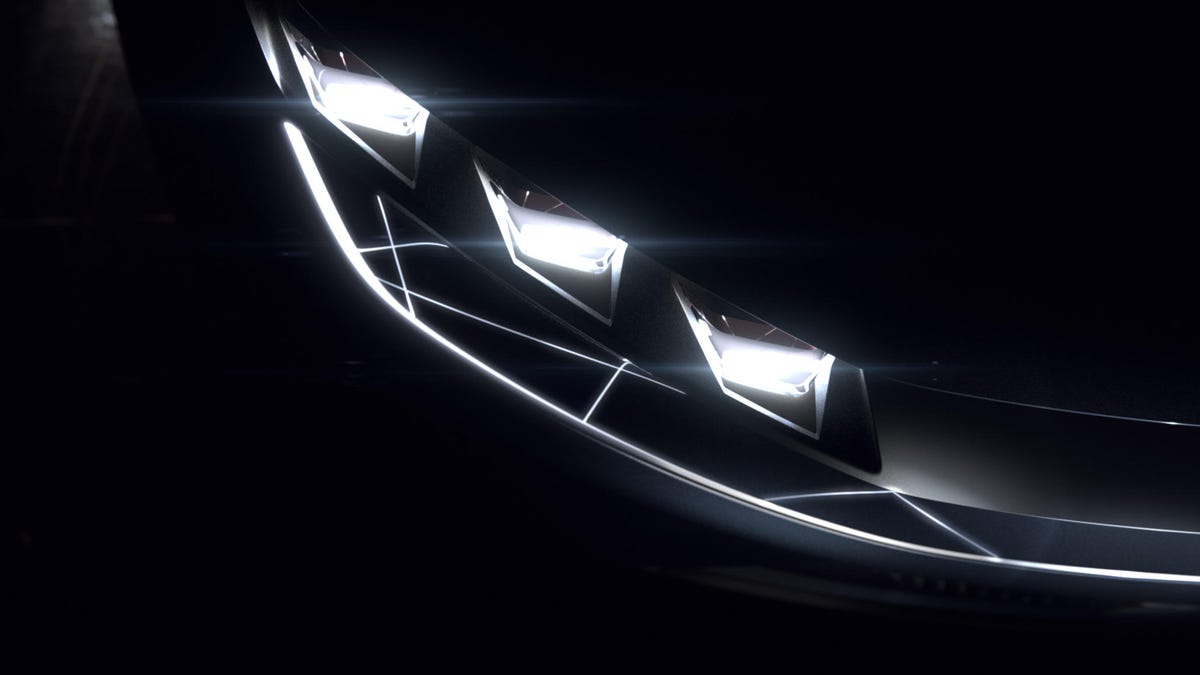Meet Byton, the self-driving electric SUV coming to CES
Chinese startup Future Mobility Corporation is making big promises, but has well-regarded industry talent and funding onboard.

It's not even October, and we're already being pitched new vehicle reveals for next year's CES in January.
One can hardly blame Future Mobility Corporation for looking to get an early jump out of the gates, though, as it's a brand-new company just getting up to speed. The Chinese startup has announced that it will show a midsize electric crossover SUV under the Byton nameplate at the Las Vegas expo. And although its footprint will be similar to Audi's popular Q5 and BMW's X3, the vehicle will apparently be shooting for a cabin with Mercedes-Benz S-Class-like appointments.
The vehicle is being developed for global sale, with China, Europe and the US chiefly in mind.
Note the illuminated B, for Byton, and the unique light cracks on the fascia.
Future Mobility Corporation may be one of dozens of nascent automakers in recent years, but the company isn't being shy about aiming high: In January, it announced plans for a $1.7-billion factory in Nanjing, with plans to offer its first production vehicle in 2020. FMC counts former executives from BMW, Nissan and Tesla among its employees. It's backed in part by Tencent Holdings, a leading Tesla investor.
It should be no surprise that FMC was founded in China. The country is at the epicenter of the electric car startup scene thanks in part to aggressive government incentives aimed at building an EV industry to improve air quality in its pollution-choked megacities.
FMC officials claim the Byton SUV will be available with a battery pack sufficient for over 300 miles of range, as well as hardware that supports full Level 5 autonomy. Part of the company's self-driving tech as well as its user experience and user interface development is being quarterbacked out of a research and development center in Santa Clara.
A tablet-like touchscreen in the wheel controls the full-width screen, too.
The data transfer requirements for a fully autonomous connected car are expected to be immense, and FMC says that its vehicle will be equipped with a constant data connection "with a bandwidth of up to 1000MB/s," suggesting it will have to launch with 5G capability. That large data pipe should also allow for seamless video streaming content to the vehicle's full-screen dashboard. A separate screen in the steering wheel will enable touch controls of the larger full-width screen.
That tablet-like touchscreen will be just one part of a unique user interface that will include facial and gesture recognition as control inputs, as well as features like a day planner and a "friend radar" that displays the locations of nearby contacts.
Future Mobility Corporation's plans and proclamations are nothing if not ambitious, and only time will tell if this young company follows the so-far meteoric career arc of Tesla, or that of Faraday Future, a formerly well-funded startup that seems increasingly unlikely to produce a single car.

